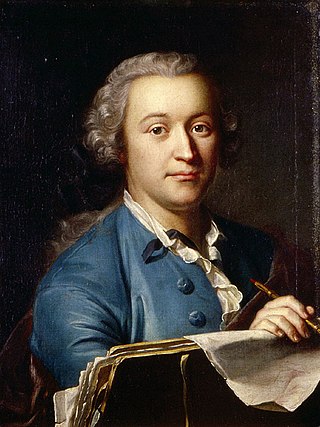
Johann Ludwig Aberli was a Swiss painter and etcher.
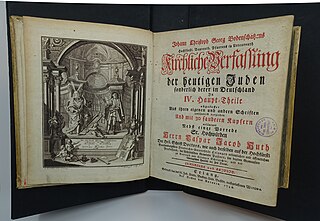
Johann Christian Georg Bodenschatz, was a German Protestant theologian.

Jeremias Falck was an engraver of the 17th century Baroque, born and active in the Polish–Lithuanian Commonwealth. He signed most of his over 300 works as J. Falck, sculp., a few as Falck Polonus or Falck Gedanensis.

Engraved glass is a type of decorated glass that involves shallowly engraving the surface of a glass object, either by holding it against a rotating wheel, or manipulating a "diamond point" in the style of an engraving burin. It is a subgroup of glass art, which refers to all artistic glass, much of it made by "hot" techniques such as moulding and blowing melting glass, and with other "cold" techniques such as glass etching which uses acidic, caustic, or abrasive substances to achieve artistic effects, and cut glass, which is cut with an abrasive wheel, but more deeply than in engraved glass, where the engraving normally only cuts deeply enough into the surface to leave a mark. Usually the engraved surface is left "frosted" so a difference is visible, while in cut glass the cut surface is polished to restore transparency. Some pieces may combine two or more techniques.

Johann Georg Wille, or Jean Georges Wille was a German-born copper engraver, who spent most of his life in France. He also worked as an art dealer.
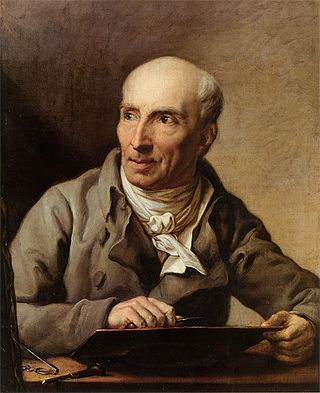
Johann Friedrich Bause was a German copper engraver; primarily of portraits.

Adolf Schrödter or Adolph Schroedter was a German painter and graphic artist; associated with the Düsseldorf school of painting. He is considered to be one of the pioneers of German comics.
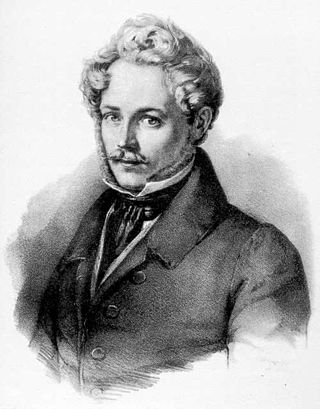
Ernst Fries was a German painter, draftsman, watercolourist, etcher, printmaker, and lithograph. Besides Karl Philipp Fohr and Carl Rottmann, he was the youngest of the so-called triumvirate of Heidelberg Romanticism. His works represent a transition from Romanticism to Realism.
Maria Clara Eimmart, was a German astronomer, engraver and designer. She was the daughter and assistant of Georg Christoph Eimmart the Younger.

Jacob von Sandrart was a German engraver primarily active in Nuremberg.

Johann Elias Ridinger was a German painter, engraver, draughtsman and publisher. He is considered one of the most famous German engravers of animals, particularly horses, hounds and hunting scenes.

Caspar Lehmann was a German gem cutter and glass engraver.

The Klauber family were engravers and fine art publishers from Augsburg, Germany. Two of the sons of ancestor Franz Christoph Klauber established a catholic fine art publishing company by 1737, together with Gottfried Bernhard Göz (1708–1774), who broke away to start his own business in 1742. Klauber Brothers remained a trade mark until the end of the century, and longer:
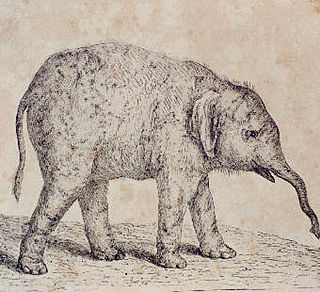
Johann Heinrich Tischbein, known as The Younger was a German painter and engraver from the Tischbein family of artists.
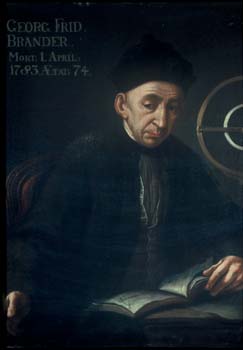
Georg Friedrich Brander was an important maker of scientific instruments.

Alfred Bock was a German writer. In 1924, Bock was awarded the prestigious Georg Büchner Prize, the most important literary prize for German language literature.

Egid Verhelst the Younger was a German painter, draughtsman, sculptor, and engraver.
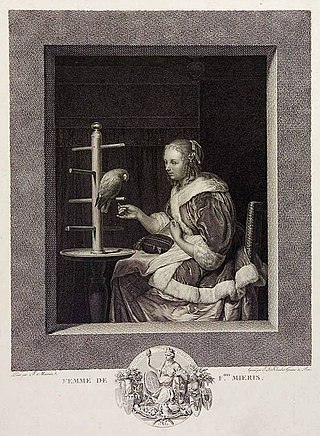
Ignaz Sebastian Klauber was a German copper engraver, who spent an important part of his career in Russia.
Gottfried Wilhelm Lehmann was a German copper engraver and later founder and pastor of the first Baptist congregation in Berlin. Along with Johann Gerhard Oncken and Julius Köbner, together known as the Baptist "cloverleaf", he is one of the founding fathers of German Baptists.

Ephraim Gottlieb Krüger was an engraver from the Electorate of Saxony in Germany who was also notable as a professor at the Dresdner Kunstakademie.


















